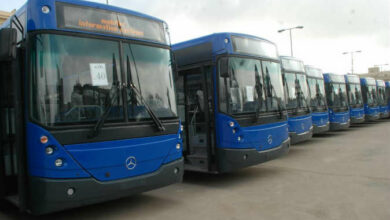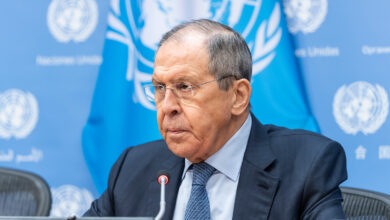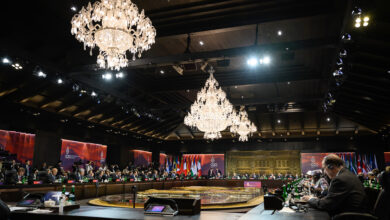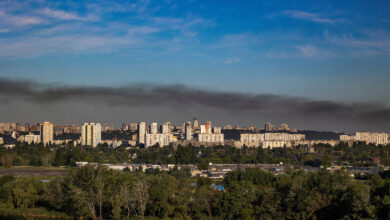Leading Wednesday's newspapers are the suspension of the public transport strike, a political deal to free alleged Israeli-American spy Ilan Grapel, and political candidates' electoral maneuvering ahead of parliamentary elections.
Independent paper Al-Tahrir's top headline reads "Spy-swap transactions." The paper reports on US Secretary of Defense Leon Panetta's meeting with the chief of Egypt's ruling military council, Hussein Tantawi, saying the two discussed the release of Ilan Grapel in return for the release and return of 25 Egyptian political prisoners being held in Israel.
Covering the same issue, the main headline in the liberal opposition paper Al-Wafd reads "Secrets behind the Israeli spy deal: Release of Ilan in return for 25 Egyptian prisoners and American weaponry." Another of the paper's front-page stories reports that a female journalist at Israeli newspaper Maariv uncovered the prisoner swap, a deal that reportedly comes in light of Panetta's visit to Israel and Egypt. Other than the release of 25 Egyptian prisoners in exchange for Grapel, Egypt will – reportedly – also be able to purchase advanced weaponry and defense systems from the US.
Independent daily Al-Shorouk reports that the two men discussed "means to advance military cooperation," while independent daily Al-Dostour's coverage of the meeting claims that Panetta called for both the release of Grapel and a calming of the situation in Sinai. In another of Al-Dostour's articles, headlined "Israel continues to reinforce its troops along [Egyptian] border, prepares its reserve forces… proposes release of Grapel in exchange for 25 Egyptian prisoners," the paper cites these military preparations are being undertaken in light of the armed attack on Israel's Red Sea port city of Eilat, from Sinai on August 18.
In other news, the state-owned Al-Ahram runs a story on the suspension of the Public Transport Authority (PTA) workers' strike, headlined "Minority of workers remain opposed" pointing out that the strike, which lasted 17 days, has been suspended until January in response to a pledge of financial assistance and concessions for workers.
These concessions include increased monthly bonuses that amount to fixed pay raises each month ranging from LE150 to LE200. PTA workers are demanding 200-percent increases to their bonuses, along with improved wages and pensions, as well as proper maintenance and expenditures for public buses, among other demands. Although the strike is currently suspended, more than 35,000 PTA workers and employees have threatened to resume their strikes and protests on 1 January if their demands are not met.
Covering this same issue, Al-Wafd runs a headline reading "Public buses return to the streets…" suggesting that the president of the Land Transport Union laid the blame for the crises on Manpower Minister Ahmed Hassan al-Borai. According to the newspaper, the union criticized what it perceives to be the minister's reformist approach, and claims that his actions have served to dilute the unity of Egypt's trade union movement.
In other protest-related news, Al-Dostour reported on the planned demonstration this Friday, which has been called for by 22 political parties, and which is to be dubbed "Thank you, return to your barracks." The article mentions that revolutionary political groupings and coalitions are preparing for protests in Tahrir Square and other squares across Egypt, calling on the Supreme Council of the Armed Forces (SCAF) to hand over power to civilian authorities. The groups are reported to have distributed 10,000 fliers advertising the event.
In Al-Shorouk, the same protest is reported as being named "Sovereignty for the people." The article mentions that a "million-man" protest is being planned by revolutionary civilian forces against military rule, and against political parties that give legitimacy to the ongoing rule of the SCAF.
Al-Shorouk also carries an editorial under the headline "The lost political parties" by the renowned journalist Salama Ahmed Salama. The story points out that a number of political parties, both large and small, old and new, are attempting to find their feet in the new political playing field, within which they are dwarfed by the military council and its policy-making powers.
In Al-Ahram, the largest front-page headline reads "Countdown commences for parliament of the revolution." Sub-headlines explain that "27 appeals courts prepare to receive nominations for People's Assembly elections" and "Government discusses new election law during extraordinary session." The article explains that judicial supervision of the elections will be organized, on the national and local level, by Appeals Court justices. As for the parliamentary elections law proposed by the SCAF, it is still being negotiated and renegotiated by political parties amid threats of electoral boycotts by some parties.
Egypt's papers:
Al-Ahram: Daily, state-run, largest distribution in Egypt
Al-Akhbar: Daily, state-run, second to Al-Ahram in institutional size
Al-Gomhurriya: Daily, state-run
Rose al-Youssef: Daily, state-run
Al-Dostour: Daily, privately owned
Al-Shorouk: Daily, privately owned
Al-Wafd: Daily, published by the liberal Wafd Party
Youm7: Daily, privately owned
Al-Tahrir: Daily, privately owned
Sawt al-Umma: Weekly, privately owned
Al-Arabi: Weekly, published by the Arab Nasserist party




